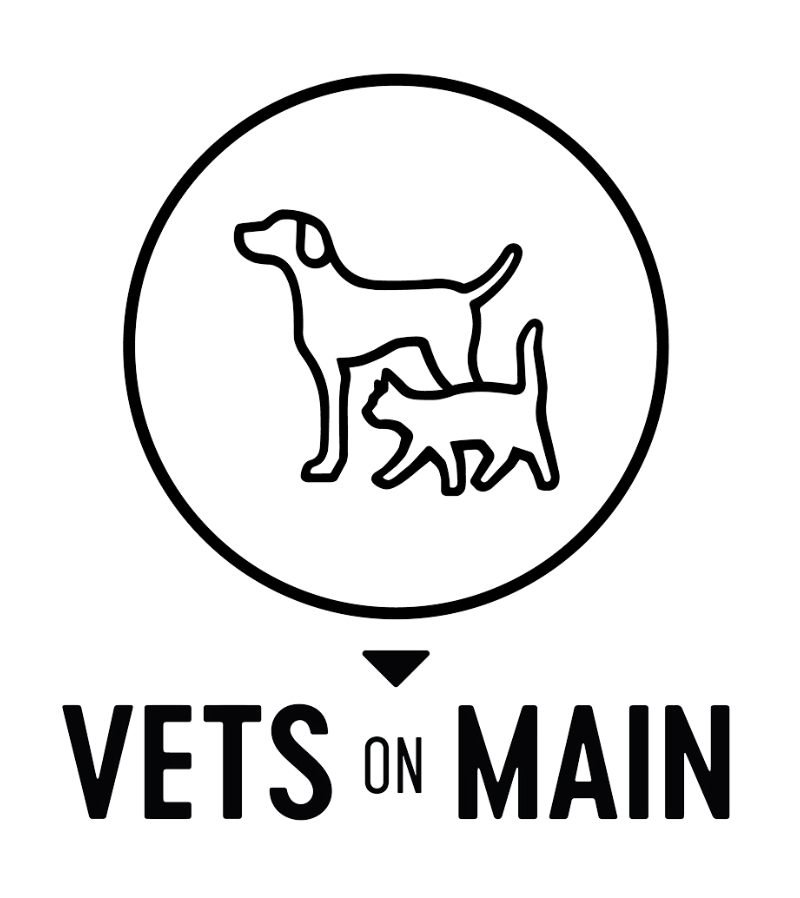
Health Screening for Responsible Breeding
At Vets on Main, we believe in the importance of responsible breeding to ensure the long-term health and well-being of future generations of dogs. Just because a dog can produce a litter, doesn’t necessarily make them a suitable breeding candidate. Health screening plays a crucial role in identifying potential hereditary conditions before breeding, helping to reduce the risk of passing on genetic diseases.

The Orthopedic Foundation for Animals (OFA) Canine Health Information Center (CHIC) program provides breed-specific health screening recommendations, guiding breeders in making informed decisions to promote healthier litters. These evaluations can include tests for hip and elbow dysplasia, cardiac disease, thyroid disorders, and hereditary eye conditions, among others—depending on the breed’s known risks.
You can look at which tests are recommended for each breed here: https://ofa.org/chic-programs/browse-by-breed/.
Hip Screening
For OFA hip radiographs, we recommend and require sedation to ensure optimal positioning and accuracy in evaluating joint health. Proper positioning is critical for reliable assessments, and sedation helps reduce stress and discomfort for the patient.
Additionally, we offer PennHIP testing, which is our preferred method for evaluating hip health. PennHIP uses a specialized radiographic technique to measure hip laxity (looseness), which is a key predictor of a dog’s risk for developing hip dysplasia later in life. Unlike OFA scoring, PennHIP can be performed as early as 16 weeks of age, allowing breeders to make informed decisions earlier in a dog’s life.
OFA CAER (Companion Animal Eye Registry) – Eye Health Screening
Ophthalmic (Eye) health is another key consideration in breeding dogs. The Blue Book (produced by the American College of Veterinary Ophthalmologists) serves as a vital reference for screening and diagnosing inherited eye diseases. Regular OFA eye exams performed by a board-certified veterinary ophthalmologist can detect conditions such as progressive retinal atrophy (PRA), cataracts, and glaucoma—many of which can be passed down through generations.
For OFA-certified canine ophthalmology exams, breeders have several options:
- Bright Light Veterinary Eye Care (Dr. Labelle)
- Alta Vista Animal Hospital (Dr. Tinsley)
- OFA Eye Clinics hosted by local kennel clubs, such as the Ottawa Kennel Club and other regional breed clubs, which periodically offer affordable screening events.
OFA Thyroid & Other Health Testing
Certain breeds are predisposed to hereditary thyroid disease, which can impact metabolism, coat quality, and overall health. OFA Thyroid testing evaluates thyroid function by screening for hypothyroidism and autoimmune thyroiditis, helping breeders make informed decisions to avoid passing on these conditions.
Other important OFA tests may include:
- Cardiac screening for congenital or adult-onset heart disease
- Patellar luxation exams for small breeds prone to knee issues
- Elbow dysplasia screening for breeds prone to elbow issues
- Genetic testing for breed-specific hereditary conditions
By following OFA CHIC Guidelines breeders can help ensure healthier litters, prevent the spread of genetic diseases, and uphold the highest standards of ethical breeding. Our team at Vets on Main is here to guide you through these essential health screenings and provide expert care for your breeding program.

